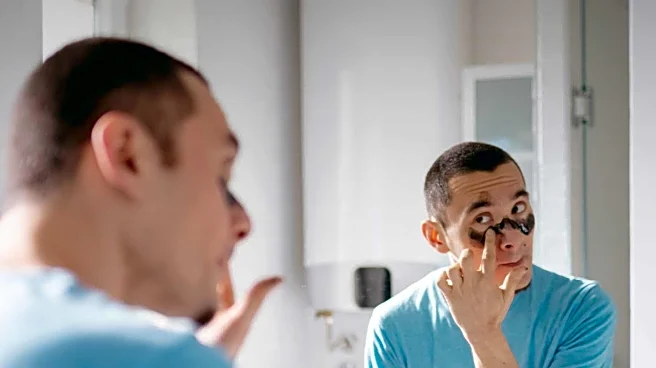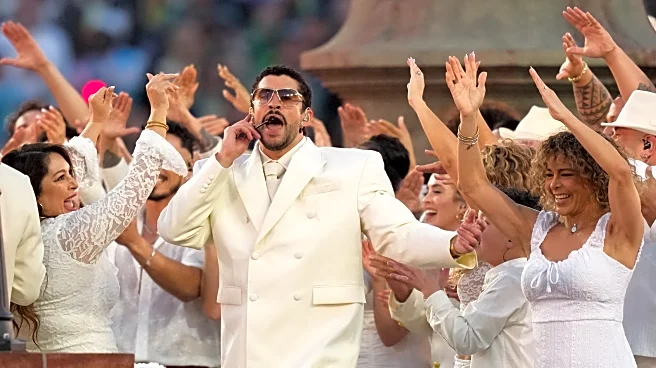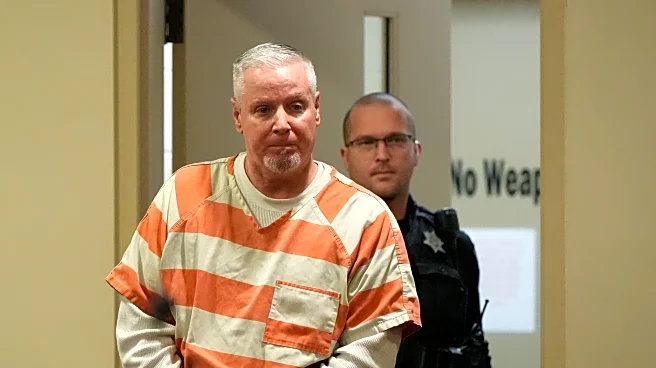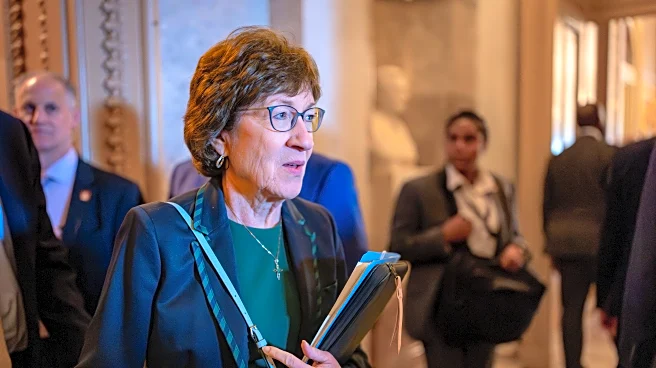What's Happening?
A distinctive body odor often associated with aging is being examined by experts who attribute it to physiological changes in the skin, sweat, and cellular composition over time. Dr. Lehavit Akerman, a dermatologist,
explains that as people age, their skin loses its ability to renew itself, leading to the buildup of fatty substances and altered sweat composition. This can result in a stronger or distinct smell, often linked to the compound 2-nonenal, which is formed when unsaturated fatty acids in skin cells oxidize. Clinical dietitian Meital Levy highlights the role of diet and hydration in influencing body odor, noting that older adults often drink less water, which can concentrate body odors. She suggests that a plant-rich diet can help mitigate these effects.
Why It's Important?
Understanding the biological basis of age-related body odor is crucial for promoting awareness and respect for natural aging processes. This knowledge can help older adults manage their body odor more effectively, improving their quality of life and social interactions. The insights provided by experts like Dr. Akerman and Meital Levy emphasize the importance of maintaining good hygiene, proper hydration, and a balanced diet to minimize the impact of these physiological changes. This can lead to better health outcomes and reduce stigma associated with aging.
What's Next?
Further research into the biological mechanisms behind age-related body odor could lead to new treatments or preventive measures. Healthcare professionals may focus on educating older adults about lifestyle changes that can help manage body odor, such as dietary adjustments and improved hydration. Additionally, there may be increased interest in developing skincare products specifically designed to address the unique needs of aging skin.
Beyond the Headlines
The discussion around age-related body odor also touches on broader societal attitudes towards aging. By framing these changes as natural and manageable, experts are challenging ageist perceptions and promoting a more inclusive understanding of the aging process. This shift in perspective could influence public policy and healthcare practices, encouraging a more holistic approach to elder care.









